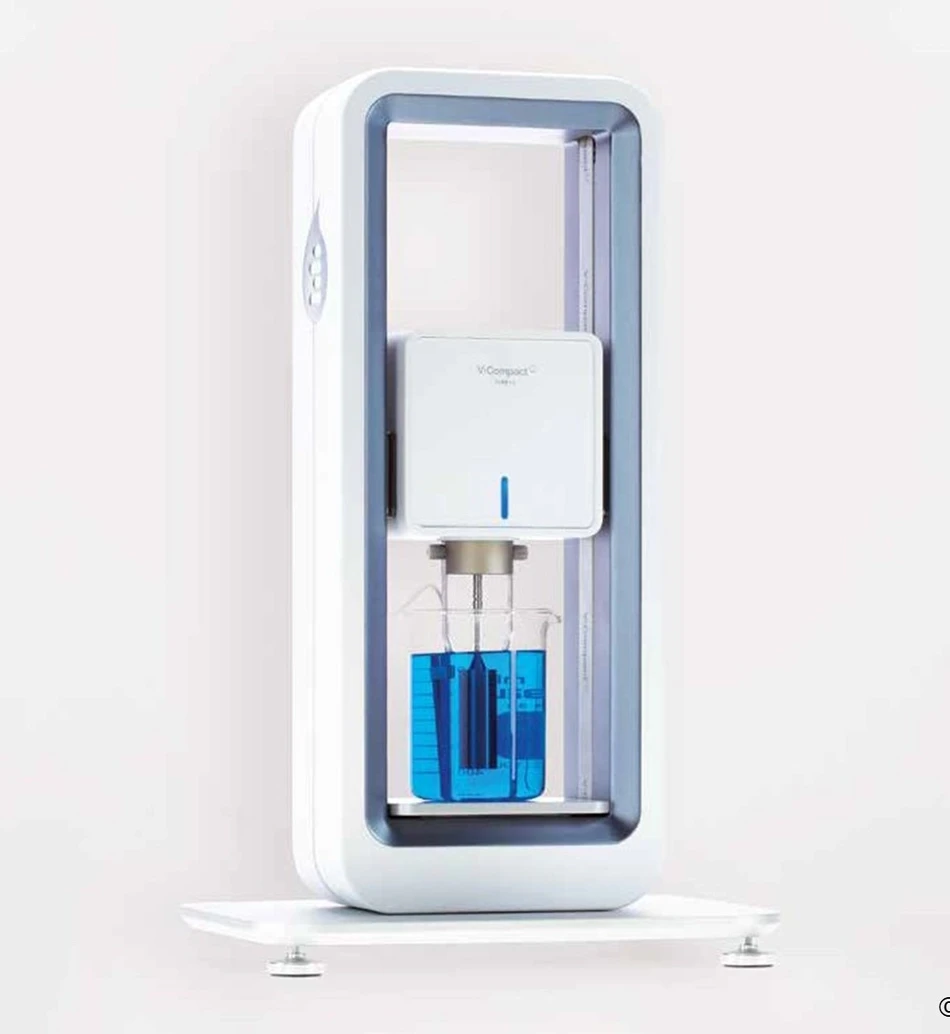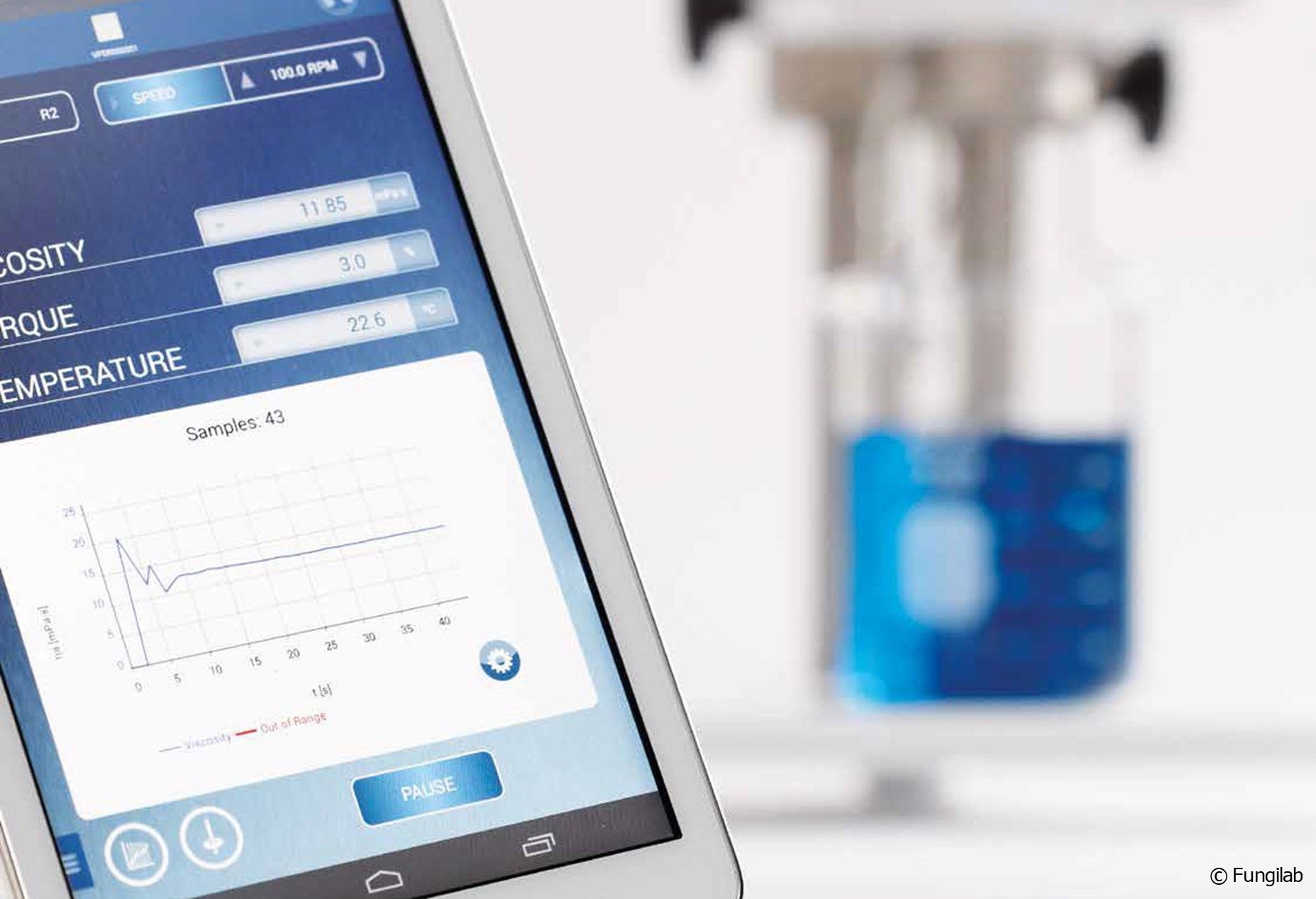A new golden age for viscosity

Fungilab, a leading manufacturer of viscosity equipment is about to announce a new series of innovations.
Its success story continues as viscosity is becoming increasingly important in modern industry.
How is it possible that your favourite soft drink keeps the same flavour, the same consistency and lasts for so long, whether you buy it from a seaside supermarket or a grocery store in a mountain village? Or that your moisturizer keeps the same texture and fragrance for several weeks, even if you open and close the jar daily? How do you know how long the oil will last in your car before it needs to be changed ?
Behind every such small miracle there is the same science: rheology, a science which studies the deformation and flow of materials in liquid or soft solid state. Among other aspects, viscosity measures the behaviour of fluids under one flow condition. The resistance of a fluid to changes in shape or how the internal molecular structure reacts to a force applied are key factors in understanding how to control fluids used for lubrication, spraying, injection moulding and surface coating or transported in pipelines, to name a few. The major challenge is to find the molecular structures that will keep these characteristics as stable as possible.
Fungilab, was founded in Barcelona (Spain) and has subsidiary offices established in New York, Panama and Taiwan, as well as a worldwide presence in more than 70 countries. It all started in the mid-eighties, since when the business grew from a small domestic company into a global leader in viscometer manufacturing. Fungilab’s equipment has already received two major industrial design awards (an IBO Award in 2015 and a Red Dot Award in 2016). The company is recognized as an international leader in the field of viscosity technologies and analyses.

Fungilab devices can be digitally connected.
Such devices include rotation, vibration and oscillation modes, all using a geometry which is compatible with each type of fluid, whether in contact or immersed in it. Measuring the torque required to rotate a disk or bob in a fluid at a given speed, the amplitude of a frequency or the energy needed to break intermolecular bonds are part of the technology and principles that Fungilab uses.
These instruments are mainly designed for R&D and Quality Control departments as well as for industrial process areas.
“We study each request case by case. We are in contact with the most prestigious manufacturers and universities around the world to better understand their needs and how Fungilab technology can help them to improve the product, which, in the end, will benefit all of us” explains Ernest Buira, Chief Executive Officer at Fungilab.
“It is such a great honour to work with not only big companies, but also to help small businesses to grow and generate what will become the new product era in research. Such challenges include finding the solution to cure cancer with new drugs, introducing new clean chemicals, becoming more conscious of the environmental factors which act on an organism, a population, or an ecological community and influence its survival and development.”
How come that such an important industrial field, having experienced its boom in the forties, has stayed so little known ?
“It is a difficult science if you don’t understand it, answers the specialist. And when people don’t understand something, they tend not to pay enough attention! Molecular structures cannot be seen, but it is increasingly important to know what happens when force is applied to them. Moreover, rheology and viscosity are currently at a turning point in their history.”
In fact, viscometry has experienced unprecedented growth, because the composition of everyday products has become more and more complex. “Paints are a good example. 20 years ago, it was quite a simple industrial field. Today, mixing has become rather difficult to control: security standards, various certifications, such as ASTM, ISO and other standards influence the composition of paints and so the characteristics of what can be sold or not.” Ecology has also become a major challenge: how to create plastic materials and make sure that they decompose to the same extent in various areas around the world? Only viscometry and rheology can provide answers to these questions.
In this new golden age of viscometry, Fungilab intends to reinforce its leading position. The company is about to launch a vast development programme of its product range. It could very well become the first company to be a leader in three major scientific fields: rotational viscometers, intended for quality control, which is Fungilab’s current speciality; in process viscometers and scientific rheometers used in laboratories and R&D.
Another major step for these “serial innovators”, already ahead of the competition thanks to a number of unique applications. In fact, all new Fungilab devices can be digitally connected for comparing results immediately and on a worldwide level. Whenever new functionalities, standards or calculations emerge, it will no longer be necessary to buy a new device, like it used to be until now: a minor update will be sufficient.


